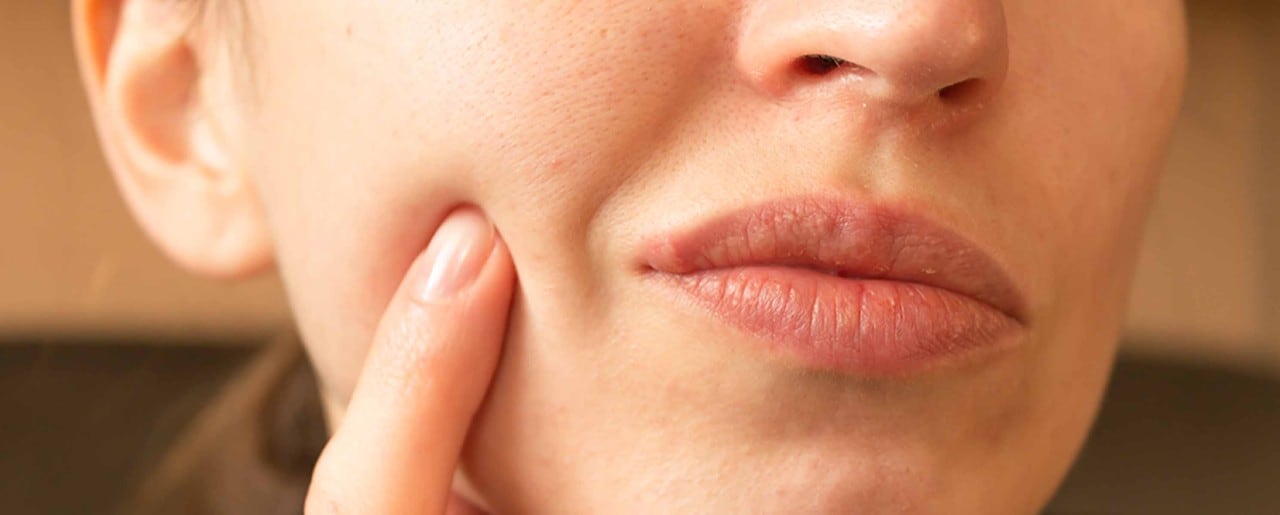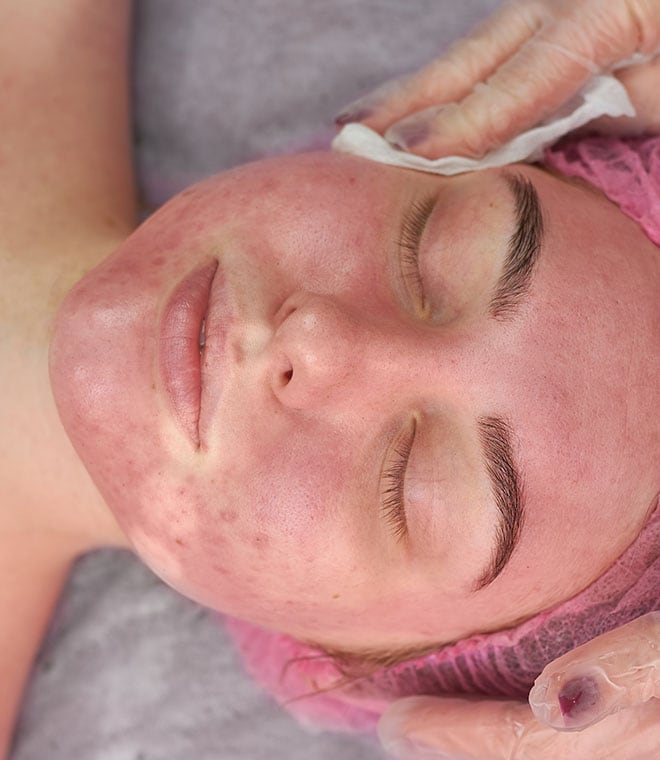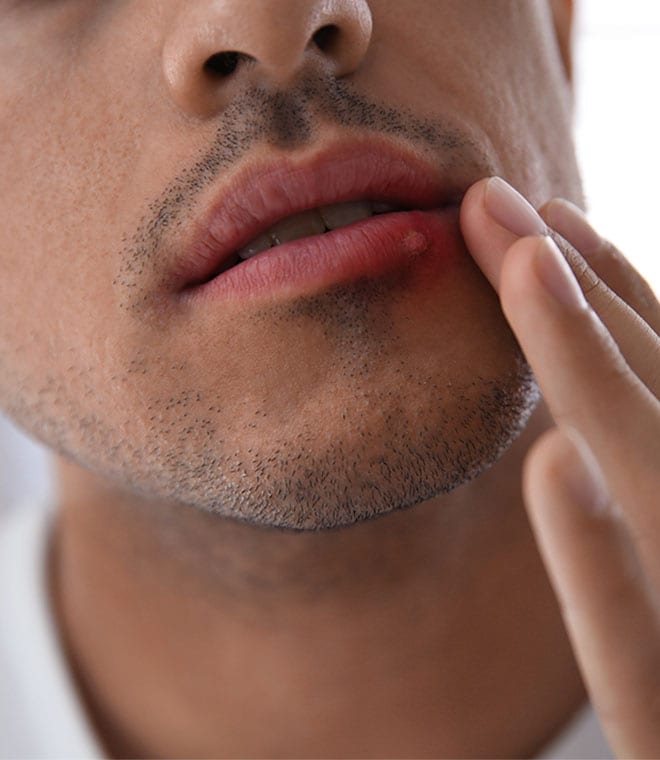Health
How do you get cold sores?
By Anna H. Chacon, MD, Fellow of the American Academy of Dermatology Jul 10, 2024 • 2 min
Cold sores are a common viral skin ailment that often occur on or around the lips and nose. These unsightly sores can be painful—and they always seem to appear at the worst possible time. Here's how you get cold sores, and what you can do about it.
What causes cold sores?
The herpes simplex virus, usually type 1 (HSV-1), is the cause of cold sores, which are also known as oral herpes, herpes labialis or fever blisters. According to the World Health Organization (WHO) in 2016, 67% of the world population under the age of 50 has HSV-1. However, only 20% to 40% of those infected will ever get a cold sore.
Many people with HSV-1 will never know they have it. Many others will get one or two cold sores in their lifetime. Still others may get five or more cold sores per year, and some people may experience them frequently for a period of time, and then suddenly stop getting them.
How do you get cold sores?
Herpes simplex 1 is a highly contagious virus. It spreads through direct skin-to-skin contact with someone who has a cold sore or through sharing items, like eating utensils, lip balm or a face towel.
Once you contract HSV-1, it stays in your body for the rest of your life. HSV-1 lives in your face, in a cluster of nerve cells called the trigeminal ganglion. If the virus travels the nerve pathway to your lips, you will get a cold sore. The sore is contagious from the time it appears to when it's completely healed. It can spread to others, and it can spread to different parts of your face, including your nose and eyes.
Can you prevent or cure cold sores?
There is no cure or vaccine for HSV-1, but if you get cold sores often, your healthcare provider may prescribe oral or topical antiviral medications that can help reduce the frequency and severity of outbreaks.
You can also learn what triggers your cold sores and take action to prevent the triggers you can control. Some common triggers that activate the virus and cause cold sores include:
- Exposure to sunlight or UV light from a tanning bed
- Extreme hot or cold temperatures
- Very dry, cracked or damaged lips
- Physical or mental stress
- Hormonal changes, such as menstruation
- Fever or other illness, such as influenza
Taking good care of your lips year-round by wearing sunscreen and lip balm with SPF (sun protection factor) and keeping your stress levels down can help reduce your chances of getting a cold sore.
Clinically reviewed and updated by Julie McDaniel, MSN, RN, CRNI, July 2024.




